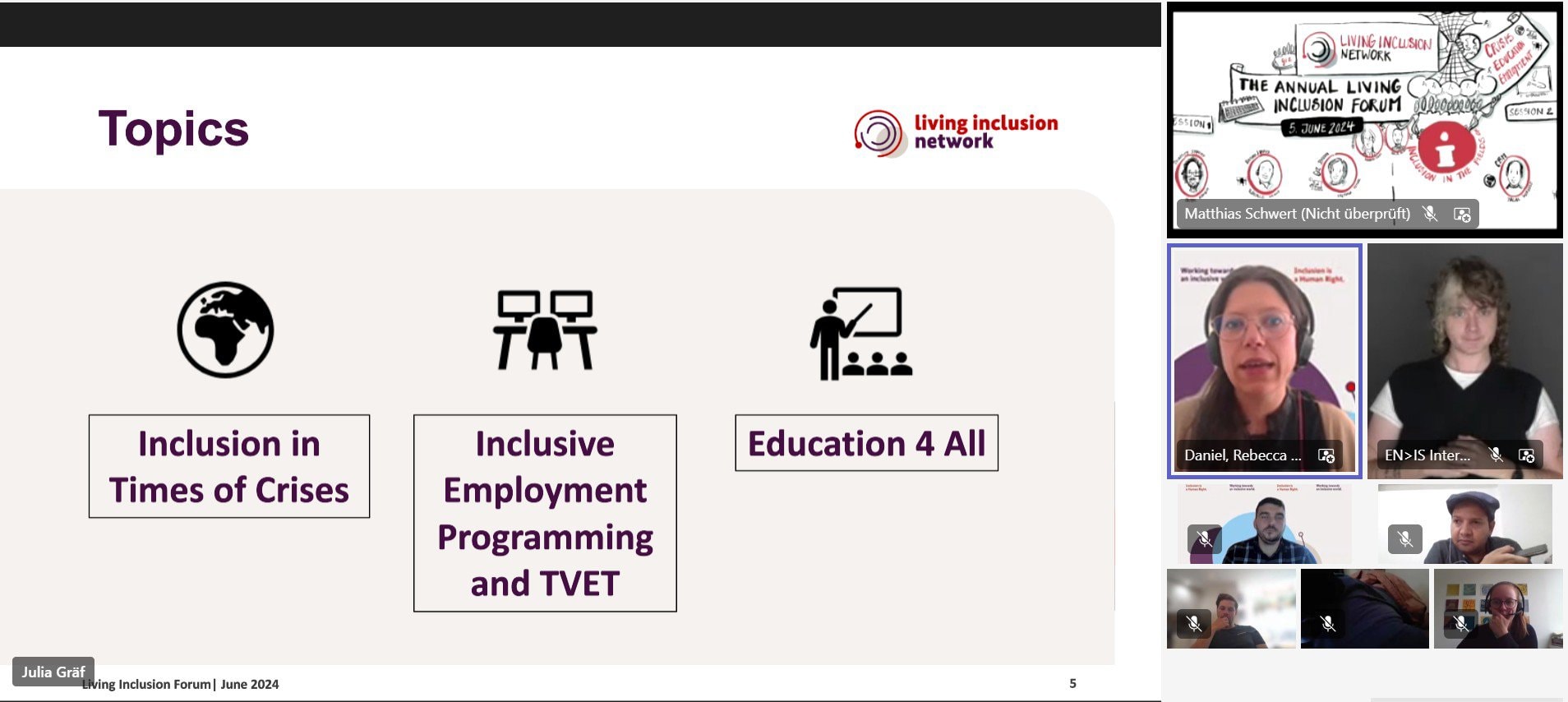Accessibility of events is not limited to providing physical accessibility, hiring sign language and closed captioning service providers, or sending out screen reader accessible documents only. Indisputably, these are very crucial points to consider, which would all deserve to be covered in our inclusion hack section on their own. However, this time, we wish to look at an element of inclusive and accessible events that is often overlooked: The role of the moderator itself.

1. Attitude and Atmosphere
A warm atmosphere is the starting point of an inclusive event, and it can be greatly supported by the moderator. Everyone should feel welcomed. Contributions from participants should be taken in with a valuing comment so that no one feels diminished. To do so naturally, in a secure way, the moderator should undergo at least a basic disability etiquette course before the event, to work on one’s awareness when it comes to interacting with persons with disabilities and to avoid unintended faux pas.
2. Inclusive Wording
Unintendedly, moderators often use discriminating language. Ableism can also be found in expressions such as “despite the disability”, “suffering from disability” or “mute”. ‘Person first’-language such as “person in a wheelchair” or “person with a disability” is usually the safest choice as you show a human-rights based attitude. Speaking to a person with a cognitive or learning disability in a more informal way than to a person without, just due to the form of disability, is not acceptable. Inclusive wording can be learnt!
3. Plain Language and Easy to Read
Not only speakers but also moderators need to understand basic rules of Easy-to-Read and plain language to be able to adjust how they address the participants. Overall, moderation should be as plain as possible. If many persons with cognitive or learning disability are expected to attend, the event organisers should even consider using Easy-to-Read information and communication. Cognitive accessibility, which plain and Easy-to-Read information is part of, is also an advantage for many other groups, such as those who are new to the topic or for non-native speakers of the event language.
4. Two-senses Principle
During moderation and presentation, the 2-senses principle is always recommended. This means, that the moderator tries to convey information via different channels of perception, such as hearing and seeing, simultaneously. This allows participants to access the information through the channel(s) which suit(s) them most. After a break the moderator could, e.g., apply a light and sound sign to make participants aware of the programme starting again. When going into group work, the moderator should not point to different corners saying, “one group goes here and the other one there”, but be specific “to your right, to your left” or “at the door, at the window”. Relevant visual content on presentation slides should be read out or explained.
5. Time Management
You may need more time to moderate an inclusive event. Events allowing for participation of all who wish to, tend to be more inclusive for many groups. Having active participation (of persons with different disabilities) increases the time requirement, e.g., if people speak slower, content is translated or needs to be phrased in a more simplified way. It is important to consider this factor upon programme planning already.
6. Representing Diversity
Not every moderator can deliver this or get trained for this specific feature of inclusive moderation. But, wherever possible, selected moderators or moderation teams should represent diversity themselves. This can also help empower other persons with disabilities and it can contribute to a shift of mindset concerning persons with disabilities: They are not in the recipient role anymore but can be observed as active members of the event team.
7. Training and Preparation
To get prepared for inclusive moderation, it is recommended to participate in trainings and to exchange with other moderators experienced with moderating inclusive events. Also, participants who indicated reasonable accommodation needs for the event could be asked for their personal view and needs towards the moderation in case of doubt.
What Are Your Good Practice Experiences? We are interested in learning your Inclusion Hacks! Please let us know if you would like to share any practical inclusion and accessibility hints and experiences.
Article by LIN team